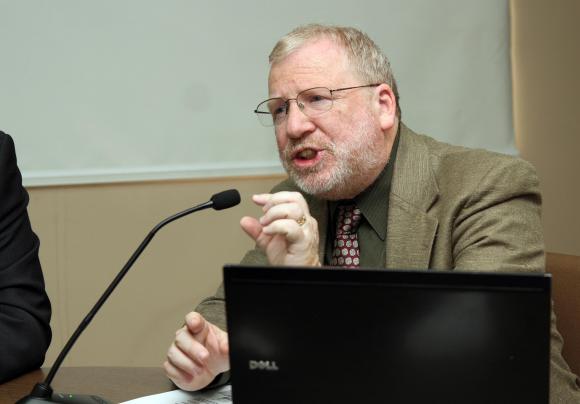William Black, by invitation of the President of Ecuador’s National Assembly, will present to the Standing Specialized Committee of Economic and Tax Regime in Quito, Ecuador on the banking crisis in that country.
Professor Black’s experience in financial regulation and his involvement in the US Savings and Loan Crisis puts him in a position to assist the Ecuadorians with their banking crisis.

Details are available in the following spanish language article.












5 responses to “Ecuadorian Banking Crisis”